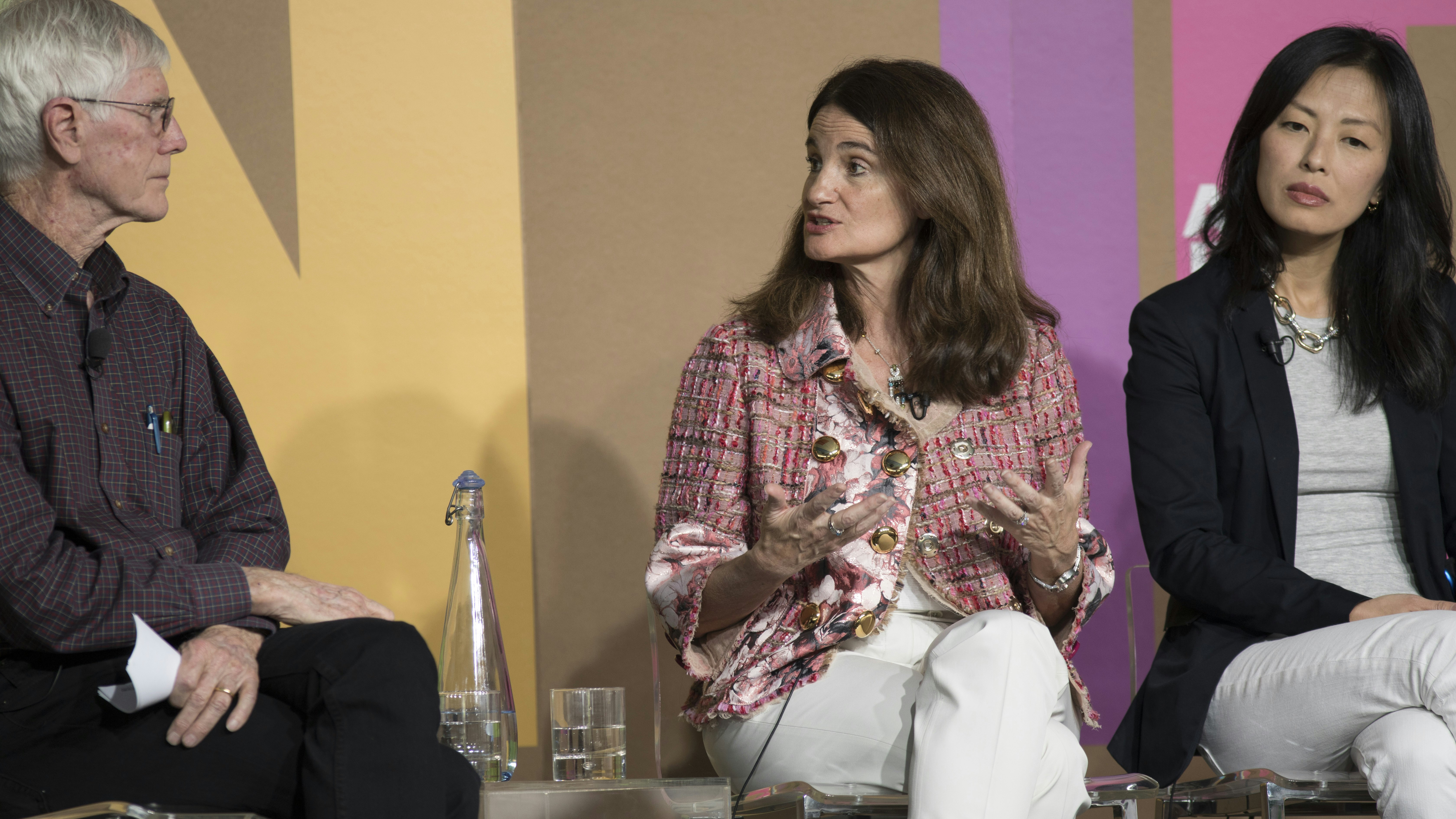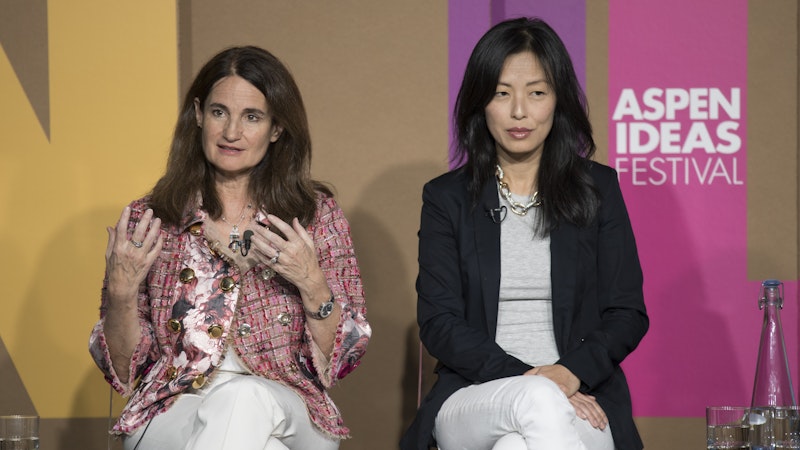
Deep Dive: Is China the Threat It’s Made Out to Be?
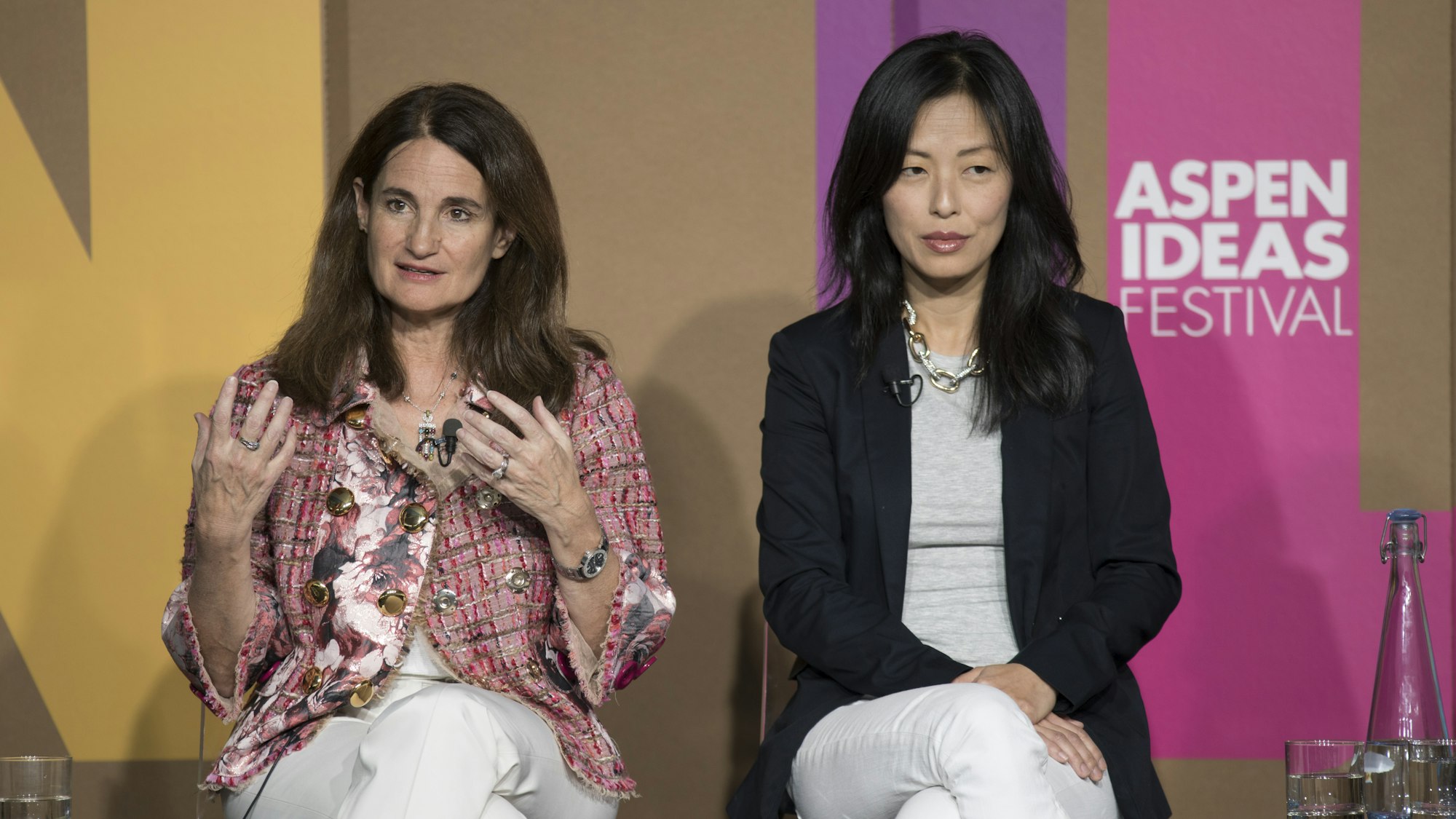
Globalization doesn’t just depend on the United States doing the right thing. It depends on China doing the right thing.
Full Session

Featured Highlights
Setup
Under Xi Jinping, China has become more authoritarian at home and more aggressive overseas. As China becomes increasingly economically dominant, what are the economic, political, and military realities of America’s most important “frenemy”? Panelists with unique insights into the world’s most populous country give us an in-depth look.
Speakers
-
 Elizabeth EconomyAuthor of The World According to China
Elizabeth EconomyAuthor of The World According to China -
 Orville SchellDirector of the Center on US-China Relations at the Asia Society
Orville SchellDirector of the Center on US-China Relations at the Asia Society -
 Rebecca BlumensteinPresident, NBC News
Rebecca BlumensteinPresident, NBC News -
 Jung PakSenior Fellow and SK-Korea Foundation Chair in Korea Studies, Brooking...
Jung PakSenior Fellow and SK-Korea Foundation Chair in Korea Studies, Brooking... -
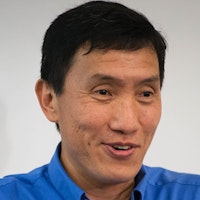 Yasheng HuangInternational Program Professor in Chinese Economy and Business, Profe...
Yasheng HuangInternational Program Professor in Chinese Economy and Business, Profe... -
 Mary Kay MagistadCreator and Host, "Whose Century Is It?" Podcast
Mary Kay MagistadCreator and Host, "Whose Century Is It?" Podcast -
 William SheltonIndependent Consultant; Retired Commander, Air Force Space Command
William SheltonIndependent Consultant; Retired Commander, Air Force Space Command -
 Scott SwiftAdmiral (Retired), US Navy
Scott SwiftAdmiral (Retired), US Navy -
 John PomfretJournalist, The Washington Post; Author, The Beautiful Country and the...
John PomfretJournalist, The Washington Post; Author, The Beautiful Country and the...
- 2018 Festival
- World
Who is Xi Jinping?
To understand what’s going on in China, one must understand the story of Xi Jingping, China’s leader and one of the most powerful people in the world. Elizabeth Economy explains Xi’s backstory and how he’s now changing the rules of the game globally in some “Trumpian” ways.
Blame and consequences in the US-China trade war
Rebecca Blumenstein and Elizabeth Economy debate who’s at fault in the US-China trade war, what the consequences may be, and what it means for globalism in the long term:
-

Rebecca Blumenstein: I think we’re at a worrisome point. The whole notion of globalization and engagement is coming undone between the US and China. We are actually in the middle of a trade war with China, which is shocking. You see the business community, which has supported the Trump administration in many respects, shocked and appalled, because many companies make things that have parts from China and other places, and although the Trump administration is trying to save jobs, there are a lot of fears we could actually lose jobs. We could end up at the end of globalization where you have US goods made in the US and Chinese products made in China. Most people who are realistic about the cost of manufacturing don’t think it’s realistic to bring all these jobs back to the US. I think the Chinese economy can withstand the impact of a trade war much more than the US economy. You see it with soybean farmers in Iowa — other countries, not only China, are being strategic about where they’re placing their tariffs. … China can’t make chips the way the US can now, but I’ll bet in ten years that’s going to change. … You could be seeing with 5G and technology totally separate systems in the US and China. … We have for decades had an assumption that globalization will continue — obviously it is not perfect and people have been left behind — but by targeting China in this way and making it as adversarial as it could be – when they’re the world’s second largest economy and will soon surpass the US – accommodating China is the story of our time, and if globalization is off, there are huge question marks going forward.”
-

Elizabeth Economy: This is not all about the United States in the wrong. Sure, Xi Jinping stands up at Davos and says, ‘we’re a defender of globalization,’ but China does not support either the free flow of capital or certainly the free flow of information. To some extent, I feel like the media has given Xi Jinping a free pass. All it takes is for Trump to say, ‘America first’ and doing all these things, and we’re bad, but it doesn’t mean China is good and that China’s ready to step into the breach. When we look at the measures that the Trump administration is taking right now, I agree that where the tariff wars are going is not clear and it’s not likely going to end well. But, we have been accommodating China for a very long time, and we’ve listened and we’ve waited and we’ve expected they’d do better on things like intellectual property rights protection, subsidies … all these nuanced barriers to entry for American and other countries. At a certain point, when you have the second-largest economy in the world, you have to stand up and say enough is enough. And to that extent I think the Trump administration is right. The end strategy may not be the best, but the point is an important one. And I think we’re not the only ones. All of our allies are concerned with the exact same problems dealing with China that we are. Globalization doesn’t just depend on the United States doing the right thing. It really depends on China doing the right thing, and China hasn’t done the right thing for a very long time.
How China has fostered, and stifled, democracy and innovation
It’s hard to understand China’s complex hybrid system of political closedness and economic openness, which Yasheng Huang argues has both prevented China from becoming a democracy and encouraged democratic values that didn’t exist before. Huang also explains why China is in fact very vulnerable in a trade war, and warns against Chinese retaliation.
Meanwhile, citing several interesting statistics, Mary Kay Magstad shows that China is not as innovative as it could be, despite lots of effort, precisely because of its politics.
Big IdeaWhere do big ideas come from? Often, it’s about connecting the dots in unexpected ways, and the more dots you have to look at, the more likely you will come up with new ideas. If you’re limiting how many dots you have in an information environment, it stands to reason you could be very agile and effective in innovating for the Chinese market, but to rise to an international level, to be a global leader in innovation, to transform the way we live, the Chinese are not hitting it.Mary Kay Magistad
China’s media landscape is bad, but all is not lost
John Pomfret talks about the flow of information in China and how it has undulated throughout the country’s modern history. Xi Jinping has cracked down on all sorts of speech in his tenure, which has ensured that many media organizations are acting as propaganda outlets for the regime. Yet, there are bright spots in China’s media landscape, explains Pomfret. “So, the battle is far from lost.”
Who knew?
Is China a national security threat?
Two retired military leaders with vast experience in the Pacific offer their takes on China’s rising position on the world stage — and what that could mean militarily. With China in effect choosing which of the international rules that have governed other countries’ relations since World War II it wants to follow, the United States has to respond across all levels of government, according to Scott Swift — and the military should be the last tool to reach for.
Wowed by China’s space capabilities, William Shelton says there’s reason for concern about its intent with its space program. And the best response, to not find ourselves in a sticky situation down the road, is to develop a long overdue national strategy with relation to China. In agreement with Swift about the military being a last resort, Shelton notes: “It’s the generals and admirals trying to keep us out of conflict, not get us into conflict.”
The takeaway
Learn More
Additional Information
Explore More
World


Using the law to charge and imprison political opponents is a favorite tactic of dictators the world over. In an age of growing global authoritarianism, unscrupulous rulers ar...

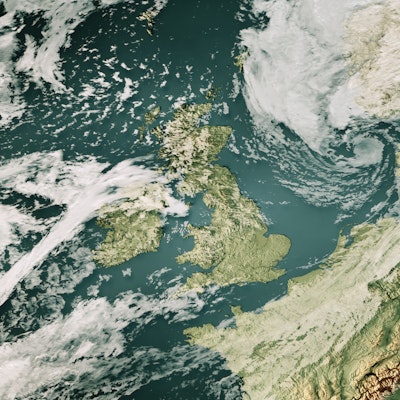
Scholars are still uncovering information about Britain’s involvement in the transatlantic slave trade and its era of slavery, piecing together how the wealth generated from t...

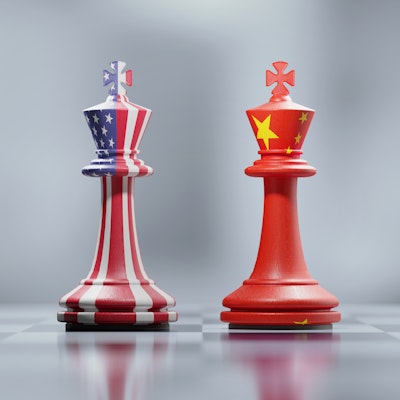
Relations between the United States and China have become increasingly tense over the past few years. Trade wars have escalated, and U.S. national security experts are bracing...

Three people whose lives have been irrevocably changed by the Israel-Palestine conflict share their stories of profound loss, grief and forgiveness.


Sizable electorates around the world are flocking to populist candidates who promise power, domination and a return to better times. The global experiment in liberalism seems...

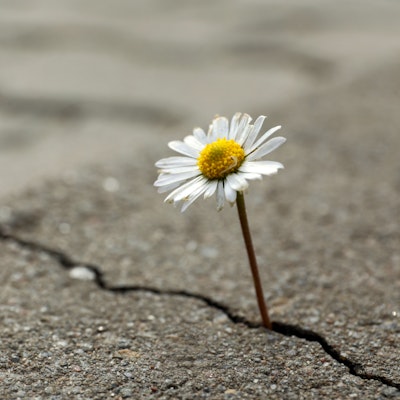
Conflict and suffering can bring out the worst in people, but it can also bring out the best. This is one of the lessons New York Times columnist Nicholas Kristof has learned...

The war in Ukraine continues to reshape European security and global alliances, while the war in Gaza raises urgent questions about humanitarian aid and international interven...


The grim stream of news from the Middle East has been making it more and more difficult to hold onto hope for peace. When and how will the conflict in Gaza end? And could war...

As one of the foremost reporters of his generation, Nicholas Kristof has been witness to century-defining events and atrocities around the world. How has he managed to weaponi...


Africa is a rising giant. By 2050, one in four people on the planet will be African, and by 2060, Africa will have the largest labor force in the world. A former Nigerian pres...

With the war in Ukraine in its third year, Putin shows no sign of tempering his military ambitions. Though global pressure on Russian investment has so far failed to crush the...

Of the 1.2 billion youth aged 15 to 24 worldwide in 2019, close to half were out of school, out of work or underemployed, and this number will continue to grow. Listen as glob...

Right-wing populism is surging worldwide, in places as diverse as India, the Netherlands, Argentina, France and the United States. What are the cultural and social forces driv...

Hear from Mexican investigative journalist Anabel Hernández, who risks her life to investigate drug cartels and the people in power who protect them, and former assistant U.S....

The October 7 attack by Hamas and the devastating nine-month war in Gaza have shattered hopes for resolving the Israeli-Palestinian conflict and reduced the likelihood of expa...

The October 7 attack by Hamas and the devastating nine-month war in Gaza have shattered hopes for resolving the Israeli-Palestinian conflict and reduced the likelihood of expa...

As repressive regimes clamp down on the press, they are now targeting media owners. China shut Hong Kong’s Apple Daily and locked up owner Jimmy Lai. Guatemala’s El Periódico...

With antisemitism resurgent, Simon Schama, acclaimed author of “The Story of the Jews,” speaks about the magnitude of the problem, examining “the oldest hatred” from the time...

Across the chasm of anger that is the Israeli-Palestinian conflict, some families who have lost loved ones have found common cause in their grief. Hear from those who eschew r...




